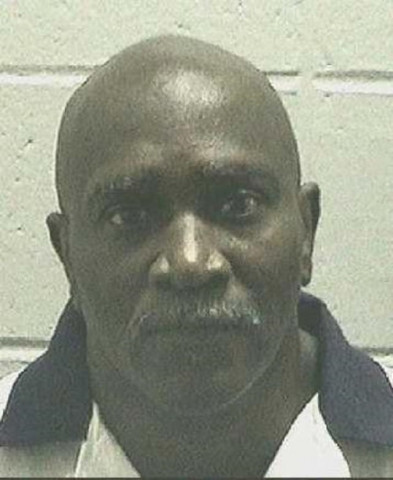Top US court grants temporary stay to black man on death row
He was condemned to death for murder by a jury that included a man who questioned whether black people have souls

Georgia deathrow inmate Keith Leroy Tharpe, who is scheduled to be put to death on September 26, 2017, is seen in this undated photo. Courtesy Georgia Department of Corrections/Handout via REUTERS
The decision capped a tense evening in which inmate Keith Tharpe prepared to die via lethal injection as the nation's top court considered his fate. He was condemned to death for murder by a jury that included a man who questioned whether black people have souls.
Pakistani-American gives history lesson to racist troll
Tharpe's lawyers had launched last-ditch efforts to secure the suspension of the execution on the basis that racism played a "pivotal role" in the decision. They also argue that Tharpe, 59, should be spared due to mental health problems. After delaying his execution originally scheduled for 7:00 pm, the Supreme Court issued a temporary stay but gave no reason for the decision. Three conservative justices out of the total nine opposed granting a stay.
Tharpe was found guilty of the 1990 murder of his sister-in-law Jaquelin Freeman, which took place as she drove to work with his estranged wife. As required by Georgia law, the jury unanimously decided to impose the death penalty. In 1998, an NGO that provides free legal assistance to detainees interviewed members of the jury that imposed the sentence.
One of them was a white man named Barney Gattie, who according to court records said that: "There are two types of black people: 1. Black folks and 2. Niggers. Because I knew the victim and her husband's family and knew them all to be good black folks, I felt Tharpe, who wasn't in the 'good' black folks category in my book, should get the electric chair."
The juror also said that study of the Bible had led him to wonder "if black people even have souls." Gattie said that he had not used the word 'nigger' as an insult, despite its extremely racist connotation and his having signed an affidavit in which his comments were reproduced. Aware that the remarks could potentially damage their case, prosecutors then persuaded him to renounce them in another affidavit and said that he was drunk when he first spoke.
Sherrilyn Ifill, president of the National Association for the Advancement of Colored People's Legal Defense and Educational Fund, said that Gattie's views mean he could not have made an impartial judgement in Tharpe's case. "A juror who doubts whether black people have souls cannot make a reasoned, moral judgment about whether a black defendant such as Mr. Tharpe should face the ultimate sanction," Ifill said.
Racist Snapchat story against Sikhs, Muslims sparks outrage on social media
In several cases in recent years, the US Supreme Court has established that racial prejudice has no place in the American legal system. In February, the high court suspended the execution of a Texan who had been cast during his trial as being potentially more dangerous because he was black. The Supreme Court also ruled in favor of a black man in May 2016 who was sentenced to death by a jury of 12 white people from which black jurors were excluded. The top US court will now consider whether to hear Tharpe's appeal.



















COMMENTS
Comments are moderated and generally will be posted if they are on-topic and not abusive.
For more information, please see our Comments FAQ